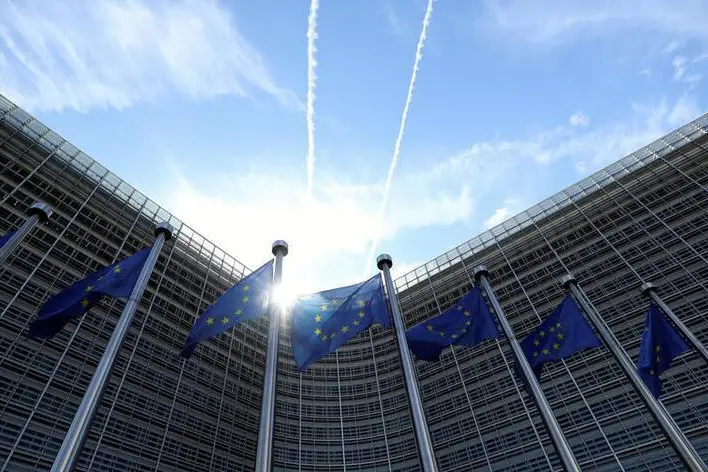PHOTO
LONDON - A panel of European Union lawmakers were set for a clash with member states after they backed a draft law banning brokers from earning fees in return for directing share trades to specific trading platforms.
Wednesday's vote by the European Parliament's economic affairs committee contrasts with a decision by EU states to permit 'payment for order flow' (PFOF), although under strict conditions, in countries that choose to allow it.
The European Parliament and the EU bloc's 27 member states must now thrash out a joint position that would become law.
"A ban of PFOF is a huge disservice to retail clients and to the Capital Markets Union as a whole," said Markus Ferber, a committee member from Germany, where many PFOF brokers are based.
"Banning PFOF will do precisely one thing: making trading costs for retail investors go up," Ferber said.
Britain has already banned PFOF, while the United States has considered such a move.
The proposed ban is part of a draft law to update the bloc's securities rules known as MiFID.
It also includes creating close-to-real time "consolidated tapes" of stock and bond trade prices, long a feature of U.S. markets, to help investors find the best deals across multiple platforms that trade the same stocks in Europe.
The committee voted to go further than the draft law from the European Commission by including "pre-trade" or offered prices, meaning not just prices of completed trades.
Danuta Huebner, lead lawmaker on the draft law, said a single consolidated tape in all asset classes would "greatly increase the attractiveness of EU markets for European and international investors".
Huebner has repeatedly warned of the need to avoid putting the EU at a disadvantage to Britain, a major financial centre on its doorstep and now outside the bloc, which is also updating its own securities rules, as is the United States.
"We have taken a careful look at other jurisdictions, and we put forward changes that seek to increase the competitiveness of EU firms," Huebner said.
Exchanges, which derive revenues from their market data, have lobbied against such as move, preferring a tape showing delayed prices of completed trades.
The committee also backed reducing off exchange "dark trading" favoured by big investors to 7% of total trading from 8% at present, and below the 10% which EU states want.
(Reporting by Huw Jones; Editing by Alexander Smith)





















